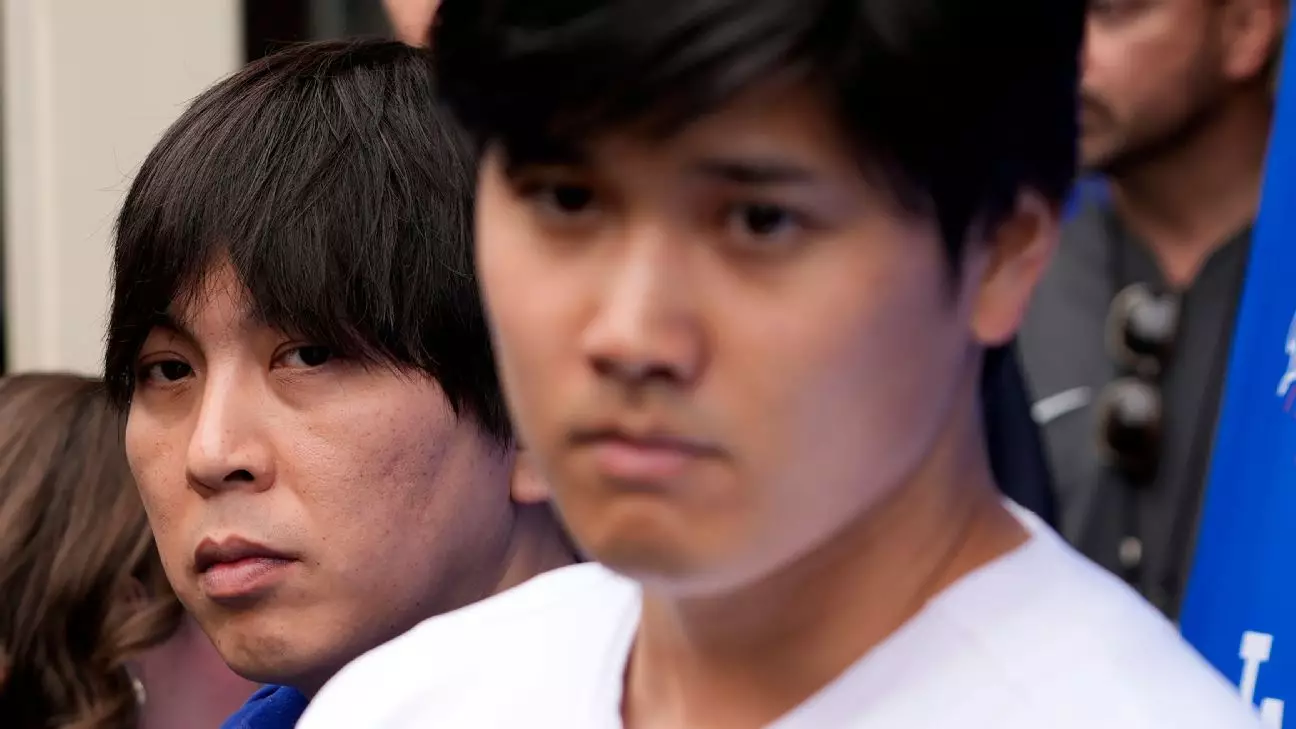In a shocking turn of events, Los Angeles Dodgers icon Shohei Ohtani is entangled in a legal dispute over the alleged financial misconduct of his former interpreter, Ippei Mizuhara. Court documents reveal that Mizuhara is accused of manipulating Ohtani’s bank account to carry out fraudulent transactions, eventually resulting in the unauthorized purchase of rare baseball cards. These circumstances have not only jeopardized Ohtani’s financial security, but they have also marred the image of what was once a trusted professional relationship, leading fans and the public to question the integrity of those surrounding sports figures.
Mizuhara’s Deceptive Maneuvers
The allegations paint a picture of calculated deception, as Mizuhara reportedly began accessing Ohtani’s bank account around November 2021. It appears that he altered personal security protocols, allowing him to impersonate Ohtani and authorize wire transfers. By the end of this manipulative spree, Mizuhara had allegedly spent approximately $325,000 of Ohtani’s money on collectible baseball cards through platforms like eBay and Whatnot—a staggering figure that highlights the depth of his betrayal. This incident illustrates the vulnerabilities that high-profile athletes face, often relying on trusted individuals who may take advantage of their positions.
Legal Repercussions and Future Consequences
Facing a series of serious charges, Mizuhara has already pleaded guilty to bank fraud and failing to report his income on tax returns. His actions are likely to have grave consequences, including a potential prison sentence of over 30 years. Yet, the ramifications extend beyond just legal penalties; Mizuhara could also be required to pay restitution approaching $17 million to Ohtani, in addition to another million owed to the IRS. This situation serves as a cautionary tale for athletes, who must be vigilant about their financial dealings and the individuals they trust.
What makes this case especially disheartening is the erosion of the personal bond Ohtani once shared with Mizuhara. Not only did Mizuhara serve as Ohtani’s interpreter throughout critical moments of his career, including his triumphs at the All-Star Game, but he also held the role of a confidant and friend. Their relationship appeared to embody a supportive team dynamic, which has now been irreversibly damaged by the betrayal of trust. It prompts a reflection on how personal relationships in sports can quickly sour when financial interests come into play.
As Ohtani navigates this painful chapter, it highlights a larger issue within the sports industry—the need for transparency and accountability. Athletes often depend on a network of advisors and representatives to manage their finances, but as this case illustrates, there must be oversight to prevent similar betrayals. Awareness of these vulnerabilities can lead to stronger systems that protect athletes not only from financial mismanagement but also from moral transgressions by those they trust.
The ongoing saga of Shohei Ohtani versus Ippei Mizuhara serves as a powerful reminder of the potential for betrayal in the world of sports. It underscores the importance of vigilance and integrity in mentorship roles and urges athletes to ensure that their financial dealings are safeguarded. As both a legal and personal battle unfolds, Ohtani’s situation resonates beyond the baseball diamond, casting a spotlight on the complexities of trust in high-stakes environments.


Leave a Reply